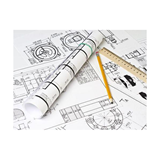A recent survey from the Australian National Engineering Taskforce claims skills shortages are still rife across many engineering disciplines.
A total of 54 per cent said there was a loss of capability in their workplace and 40 per cent felt their company did not have the correct engineering skills mix to meet current or future needs.
These are alarming statistics, particularly given Australia’s engineering skills shortage is not new.
"Good, talented people are always in demand and difficult to source at short notice," Stuart Fowler, director at engineering consultancy firm Norman Disney & Young, said.
"In the areas of building services, engineering consulting, locating senior people with up-to-date design skills and relevant project experience, in combination with excellent communication and presentation skills, is always challenging."
Finding staff in niche engineering areas, such as rail signalisation design, is even more challenging, he said.
The reason for the skills shortage is due to several factors. Australia has experienced a resources boom in WA and Queensland, which has tempted some engineers from the eastern states with lucrative remuneration packages. The boom also means those WA and Queensland are finding it particularly hard to source skilled engineers.
Fowler said inadequate professional training on-the-job, particularly in specialist skill areas, has also played a crucial role.
"There just aren’t enough people introduced to projects to be trained for the next project that comes along," he said.
Most companies have attempted to fill their engineering needs with skilled migration. Other companies have focused on snaring engineers as soon as they graduate.
"Our company has sought to introduce a high number of graduate engineers into the business each year and put them into training on-the-job, allowing them to learn design skills under the guidance of qualified senior staff. Unfortunately, not all of the industry takes such an approach," he said.
"Many companies have sought to import skills from overseas, including under sponsored 457 visa arrangements. This has certainly assisted our own business in adding senior staff with specialist skills to our existing offerings."
Skilled migration, however, can be a short-term fix. It can also be a costly solution and a difficult road for companies to navigate.
"Compliance requirements and legal costs, as well as the relocation costs of staff and their families, add significantly to the cost of business. Transfer time can also be a significant factor, as many overseas staff moves can take months to co-ordinate and complete," Fowler said.
"The advantage is, obviously, being able to inject skilled, talented senior people into the organisation that can be immediately productive."
Some in the industry are also coming up with more targeted solutions. It was recently reported that Adelaide University is targeting the recruitment of more female engineers by introducing engineering as a career choice to schoolgirls.
Fowler says the government could also look to fund additional training programs for professionals to assist with their learning skills on projects.
The engineering construction sector is expected to receive a revenue lift of 7.3 per cent in 2010/11 and 9.7 percent in 2011/12, according to the AIG/Australian Constructors Association Construction Outlook survey.
With some in the industry calling the skills shortage "chronic", it appears it will be a long road ahead in beating the engineering skills shortage.





